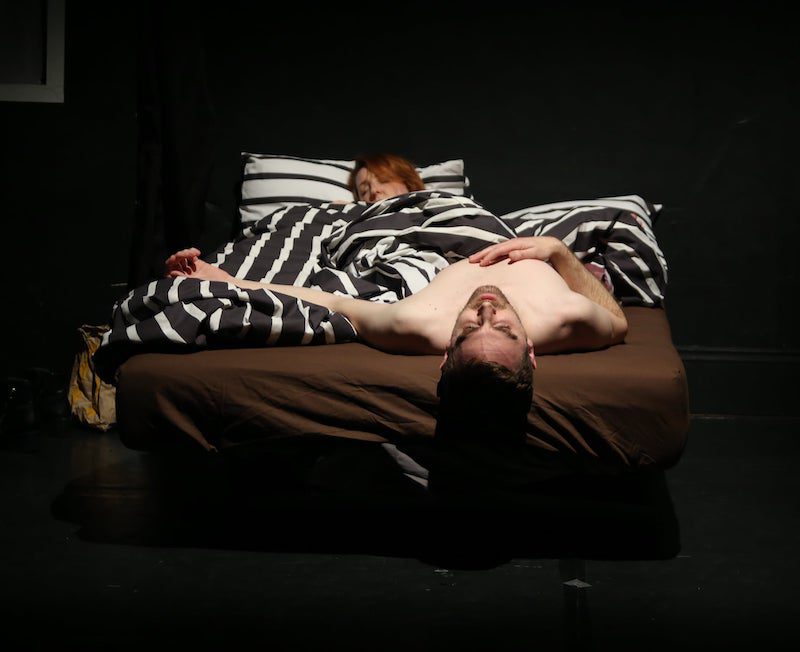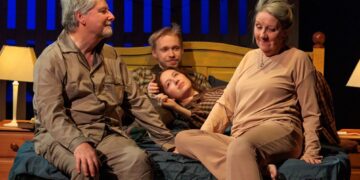Does the shadow of Thatcherism still haunt the roads most affected by The Iron Lady’s policies?
32 years after leaving Downing Street, Margaret Thatcher’s legacy is still a double-edged sword – bringing home- and share-ownership to many, and abject poverty and destitution to others.
But do those effects still linger, over three decades later?

The Conservative Party’s desire to “level up” the North could suggest so; but the definitive answer might lay in The Studio Theatre Company’s resurrection of Jim Cartwright’s 1986 play “Road”.
Arguably one of the greatest theatrical explorations of the unemployment and poverty Cartwright felt had been wrought by Thatcher’s government, the play dips in and out of a variety of homes in an unnamed road in Lancashire – giving the audience a snapshot of the lives and times of the people living within them.
The variety of characters revealed is possibly the play’s greatest strength, as this setup manages to encompass skinheads, soldiers, young lads and lasses out on the town, mums, dads, and older men and women.
Joey (Luke Burton) is so sick of the endless grind of unemployment that he’s taken to his bed and refusing to eat. The bleakness of his scenes (which perfectly capture the feeling of being painfully awake and surrounded by cold chips at 2am) are countered by those featuring Carol (Nadia Strilciw) and Louise (Laura Hannawin), off for a night on the town and the possibility of genuine romance.
And while they initially seem like a series of unrelated scenes, they are held together by Scullery (played here by Alex Daykin), a homeless man who guides the audience through the road and introduces the various characters.

Creative staging on the part of the producers means that a lot of the people we meet have a chance to interject moments of physical humour and comedy into their scenes, which provides a fun contrast to the monologues that make up the bulk of the play.
For this is a play that is absolutely (and commendably) dedicated to giving a voice to the disenfranchised and ensuring that their views on England and unemployment are heard. In many instances, this creates some powerful moments – especially Jerry (Neil Hodgson)’s lament about the loss of an age where “we all felt special but safe at the same time”.
I should note though that as it’s also quite a long play, the amount of monologues could make the evening quite an unrelentingly bleak one if you’re not prepared for it.
But perhaps that’s the point – this was reality for the real-life people behind these characters, and if we leave the performance feeling a touch of their despair, then the play truly has done a fantastic job of transporting us into their road.
The producers have set the play in 2022, with music selections and some added cultural references helping to root the story in the modern era. Which returns us to the question with which we opened – how relevant is the play nowadays? Have things moved on, or are some areas of England still living with the legacy of the 80s?
You must reach your own decisions…but I will say this.

One or two references to the 80s’ setting remain in the play, most notably a young skinhead (played here by Alex Hobbs). On first glance, you might feel that skinhead culture (and the fear it engendered) are a thing of the past, and that the character roots the play firmly in the 80s.
But in a way, his presence here serves to emphasise the story’s poignancy – one has the sense that the world abandoned him in 1986, and yet he’s still there, waiting for it to recognise him once again.
Well-acted, creatively staged and definitely one to make you think as well as laugh, “Road” (directed by Kerry Vincent) runs from 8th – 12th February at the Studio Theatre in South Hill Park Arts Centre. Tickets are available at https://www.southhillpark.org.uk/whats-on/















































